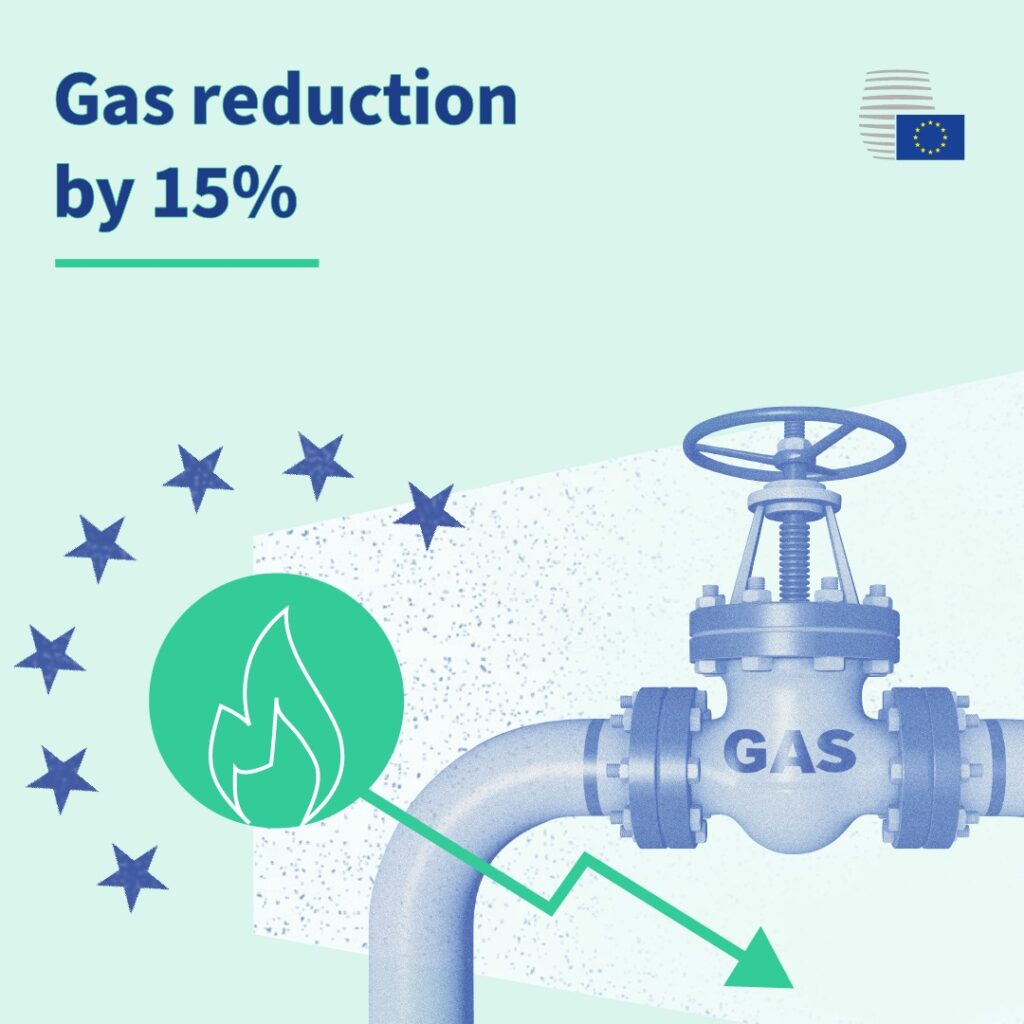Fossil Energy – Reducing Gas Demand
In an effort to increase EU security of energy supply, member states yesterday reached a political agreement on a voluntary reduction of natural gas demand by 15% this winter.

The Council regulation also foresees the possibility to trigger a ‘Union alert’ on the security of supply, in which case the gas demand reduction would become mandatory.
The purpose of the gas demand reduction is to make savings ahead of winter in order to prepare for possible disruptions of gas supplies from Russia that is continuously using energy supplies as a weapon.
Whereas all EU countries will use their best efforts to meet the reductions, the Council specified some exemptions and possibilities to request a derogation from the mandatory reduction target, in order to reflect the particular situations of member states and ensure that the gas reductions are effective in increasing security of supply in the EU.
The Council agreed that member states that are not interconnected to other member states’ gas networks are exempted of mandatory gas reductions as they would not be able to free up significant volumes of pipeline gas to the benefit of other member states. Member states whose electricity grids are not synchronised with the European electricity system and are heavily reliant on gas for electricity production are also exempted, in order to avoid the risk of an electricity supply crisis.
Member states can request a derogation to adapt their demand reduction obligations if they have limited interconnections to other member states and they can show that their interconnector export capacities or their domestic LNG infrastructure are used to re-direct gas to other member states to the fullest.
Member states can also request a derogation if they have overshot their gas storage filling targets, if they are heavily dependent on gas as a feedstock for critical industries or if their gas consumption has increased by at least 8% in the past year compared to the average of the past five years.
Member states agreed to increase the role of the Council in triggering a ‘Union alert’. The alert would be activated by a Council implementing decision, acting on a proposal from the Commission. The Commission shall present a proposal to trigger a ‘Union alert’ in case of a substantial risk of a severe gas shortage or an exceptionally high gas demand, or if five or more member states that have declared an alert at national level request the Commission to do so.


